How Long to Buy a House After Bankruptcy?
by Luke Homen
For many people, buying a home after bankruptcy is the ultimate goal. It’s a sign that you’ve moved on from your past financial troubles and have become financially stable. However, every mortgage program has different requirements, and knowing what to expect can help you plan more efficiently. Consulting with an experienced Oklahoma bankruptcy attorney can provide invaluable guidance throughout the process, including understanding how bankruptcy may impact future financial decisions.
Understanding Bankruptcy Discharge and Reporting Period
A bankruptcy discharge completely ends your obligation to pay qualifying debts. This means that the creditor absorbs the loss to some degree. For that reason, the hurdles that come with buying a home are a little bit higher for those who have a bankruptcy on their credit report. Chapter 7 bankruptcy remains on your credit report for ten years from your filing date, and Chapter 13 remains for seven years. It’s important to note this date and your discharge date, because the waiting period for most mortgage types is based on your discharge date.
Rebuilding Credit After Bankruptcy

Start by reviewing the factors that make up your credit score. Your average account age, number of accounts, credit utilization percentage, and on-time payments all play a role in your credit score. Avoid ever using more than 30% of your total available credit, and pay every single payment on time and in full. If necessary, set up automatic payments so you don’t incur late fees or late payment notifications unintentionally.
As you work toward a higher credit score, check on your credit report on a regular basis. This gives you the chance to dispute false information before it affects your credit.
At Convenient Bankruptcy, every single client who retains us for bankruptcy services will be enrolled in a free-to-the-client credit building program once they receive their discharge. This will be crucially important to put you in the best position to buy a home as soon as possible, because building your credit can be complicated.
Eligibility for Mortgage Programs
There are several different mortgage programs available to home buyers in the United States. The FHA is a popular option for those who want to put as little as 3.5% down. Conventional mortgages have higher down payment requirements but have fewer limitations than FHA mortgages. VA loans are an excellent option for veterans and active duty military personnel. Those who are interested in purchasing in a rural area may be interested in USDA loans.
One of the main factors for each of these programs is the waiting period. The waiting period dictates how long after a bankruptcy discharge you may apply for a mortgage.
A number of other factors may affect your application and eligibility. Be prepared to meet strict income requirements, meet the debt-to-income ratio requirements for your mortgage type, and account for every dollar in your accounts. Navigating the complexities of bankruptcy and its impact on mortgage eligibility can be daunting, especially for those in Oklahoma. Seeking guidance from a knowledgeable bankruptcy attorney in Oklahoma can provide crucial insights and assistance in understanding how to best position oneself for future financial endeavors, including homeownership.
FHA Loan Timeline
FHA loans have a two-year waiting period for Chapter 7, which starts on the date that your debt is discharged. There is a one-year minimum waiting period for Chapter 13 filers, which means you must have a full year of payments on your debt repayment plan behind you. You must have a minimum credit score of 580 for a 3.5% down payment—lower credit scores require higher down payments. Additionally, you must pay private mortgage insurance regardless of your down payment size. Your debt-to-income ratio must be 43% or less.
The debt-to-income ratio is frequently the biggest barrier to home ownership for most Americans. But by filing bankruptcy and eliminating all of your unsecured debts, it will be easy to achieve this 43% ratio that FHA requires!
Conventional Loan Timeline
Conventional loans are offered by a wide range of lenders. While a handful offer low down payment options, you generally need higher interest rates to qualify for these options. In general, you must have a debt-to-income ratio of 50% or less to qualify for a conventional mortgage. Most lenders prefer 36% or less. One benefit of conventional loans: you do not need to pay private mortgage insurance if you have 20% or more equity in the home. The downside of a conventional loan is that you must wait four years after Chapter 7 bankruptcy to apply. The waiting period is two years for Chapter 13 bankruptcy. Consulting with a seasoned bankruptcy lawyer can be invaluable. They can provide personalized guidance tailored to your specific financial situation and help you understand how to effectively navigate the waiting periods and eligibility criteria associated with conventional mortgages.
On a conventional loan, achieving a 36% debt to income ratio can be even more difficult for individuals and families who haven’t filed bankruptcy. But like the FHA loans, by eliminating your unsecured debt in bankruptcy, you will put yourself in a great position to achieve this ratio!
VA Loan Timeline
VA loans allow you to borrow up to 100% of a home’s value when securing a mortgage. Like an FHA mortgage, a VA mortgage requires that you wait two years from the date of discharge to get a new loan. Most lenders look for a minimum FICO score of 620. If you filed Chapter 13 bankruptcy, you cannot get a VA loan until you have a full year of payments successfully completed.
The VA mortgage is often the easiest and best mortgage you can acquire, but these VA loans are limited to service-members, National Guard, and their families.
Steps to Prepare for Home Buying After Bankruptcy
One of the best things you can do to prepare for buying a home after bankruptcy is to secure steady, reliable employment. Lenders like to see applicants in the same job for several years when they apply for a mortgage, as this makes it more likely that the applicant will continue to be able to make payments. Employment stability is a major factor in mortgage lenders’ decisions.
You should also come up with an aggressive plan to save for a down payment. Even if you can buy a home for as little as 3% down, putting down as much as possible may allow you to secure a better interest rate or qualify for a more expensive home. It can also ease lenders’ worries about your previous bankruptcy.
Once you’ve eliminated your unsecured debts in bankruptcy, we recommend you take some of the money you were paying each month to those debt companies and instead start placing it in a savings account. Even a fraction of your old monthly debt payments will add up quickly!
When you are ready to start shopping for homes, get a mortgage pre-approval before you start looking. This process may take weeks, depending on how quickly your mortgage broker works. When you find the perfect home, you want to have the pre-approval letter you need to put in a strong offer.
There is a bright financial future waiting for you on the other side of bankruptcy. Let us help you get there. We’re just a phone call away at 405-296-0069. You can also connect with our team of lawyers online.

Attorney Luke Homen is the President of Convenient Bankruptcy. He placed great value on helping individuals and families solve their financial challenges and achieve real financial freedom. His goal is to find a customized solution that fits each client’s unique situation. Luke has been practicing law since 2008, and was voted “Best Bankruptcy Attorney in Oklahoma” by The Oklahoman in the Reader’s Choice Awards.
